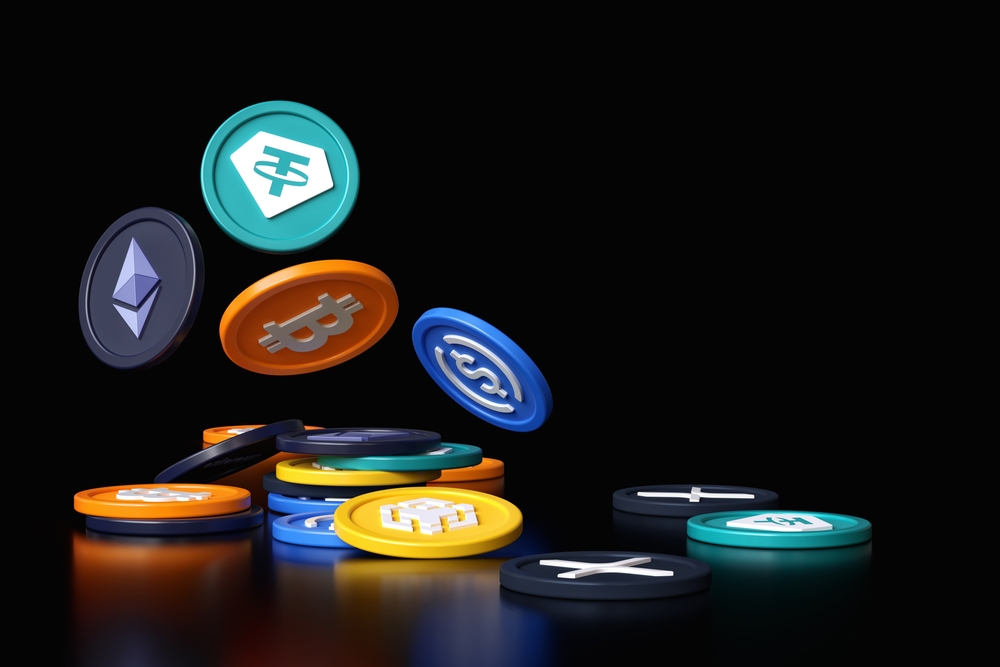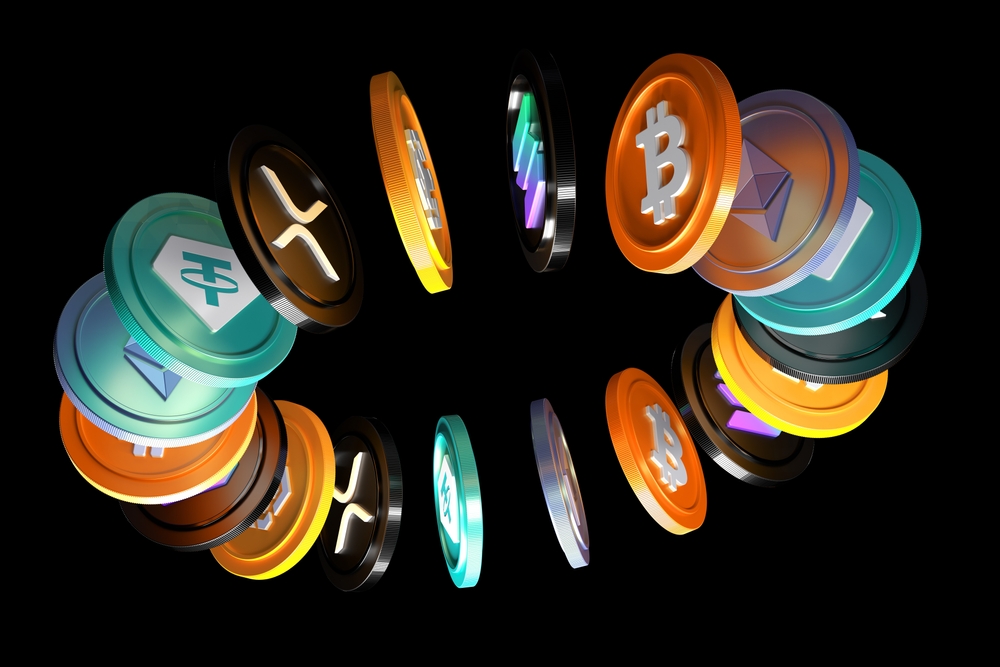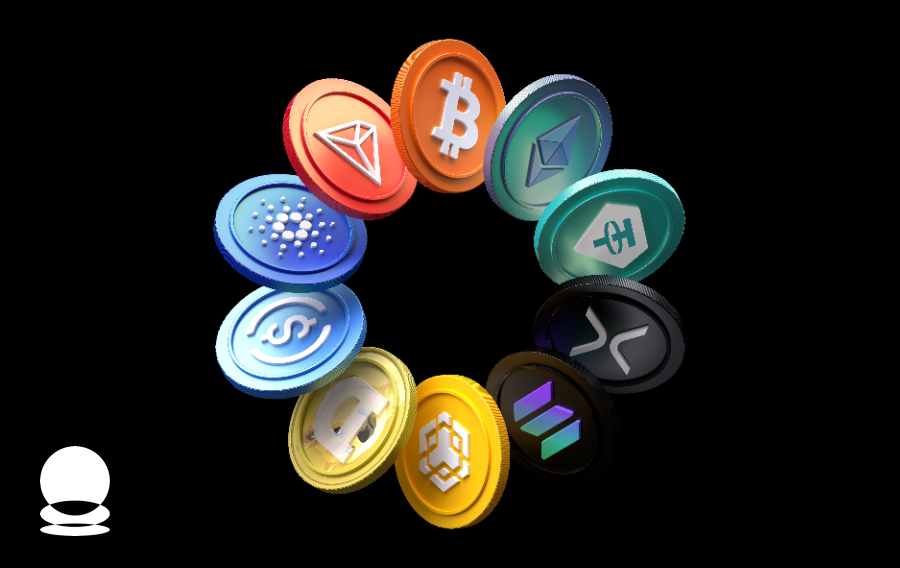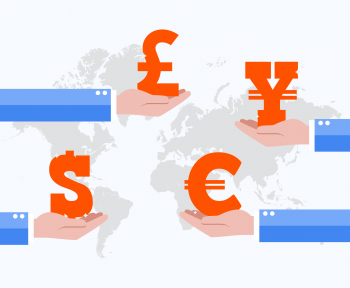It can be hard to understand digital assets when terms like crypto coin and crypto token are used in the same way. To feel sure about investments and applications, beginners need to know what makes them different.
Each one has a unique role in the digital economy and offers individuals and businesses unique opportunities. These ideas are the basis for modern blockchain ecosystems and affect how people and businesses use digital money.
The distinction is also important because the two groups mean different types of cryptocurrency. The more you know about these groups, the better you will be able to take advantage of opportunities, avoid dangers, and adapt to changes in the market that happen quickly.
The argument about coins vs tokens is still affecting adoption, regulation, and use cases, which is another reason this topic is important. You can evaluate risks, find chances, and make better financial choices if you know how each one works.
Coins like Bitcoin and Ethereum power blockchains. Tokens, on the other hand, make blockchains more useful by standing in for assets, services, and apps. Coins are the building blocks of digital economies, and tokens are often new ideas that build on that base.
Join us in this blog as we explore the terms crypto coins and crypto coins in detail. We will go into the details of their benefits, what they are used for, their key differences, and which one is more beneficial for your business. Let’s start!
What Are Crypto Coins?
A crypto coin is a type of cryptocurrency that runs on its own blockchain. Some examples are Litecoin, Ethereum, and Bitcoin. These coins are mostly used as digital currency or to make transactions on their own blockchains.
Coins are often a key part of validating transactions, paying network fees, and rewarding stakers and miners because they are built into the protocol itself. Coins can also be used to make decentralized ecosystems.
Bitcoin is mostly a decentralized store of value, while Ethereum’s blockchain uses Ether to power smart contracts and decentralized apps. Knowing what each coin does helps businesses and investors decide how to use it in their financial plans.
Coins are good because they are independent. They usually make up the base of their ecosystems and don’t depend on other platforms.
Jeton makes it easy to use these virtual currencies by making sure that transactions are safe and that they work with both traditional and blockchain-based systems. This integration makes it easy for users to move money around, whether they are making long-term investments or daily purchases.
If you want to learn more, make sure to check out:
What Are the Benefits of Crypto Coins?
The main advantages of a cryptocurrency are as follows:
- They are decentralized, secure, and accessible from anywhere in the world.
- Coins are not controlled by central banks like regular money, so people can send and receive coins from anywhere in the world.
- Cryptographic design makes coins hard to change or fake, which makes them safer.
- Accessibility makes sure that anyone with an internet connection can take part by getting rid of the things that often stop people from using traditional banks.
- Another big benefit of cryptocurrency is that it is clear. People who use public blockchains can check transactions without having to trust a central authority. This level of openness has made people more confident in digital systems.
- Coins are also portable, so you can move them around the world without the usual bank restrictions. As a result, users have more freedom.
- Crypto coins let people move value between each other right away, without needing a middleman.
What Are Crypto Coins Used For?
Crypto coins are mostly used for storing value, trading, and making payments. They are used as follows with examples of popular crypto coins:
- Bitcoin is often called “digital gold” because it protects against inflation.
- Ethereum coins, or Ether, pay for transactions and the execution of smart contracts.
- Litecoin and other coins like it are used for faster, cheaper transfers. There are also new coins being made for specific purposes, such as privacy or governance.
- Coins can also be used in decentralized finance (DeFi). People often use them as collateral for loans, governance tokens to make decisions, and liquidity for decentralized exchanges.
- They are an important part of new ways to do business with money, and they are useful for more than just being a way to trade. The benefit is that it can be used in many ways. People can use coins as money, an investment, or a tool.
Digital wallets connect traditional money to blockchain ecosystems, making it easy for users to switch between the two. A reliable bridge enables the use of cryptocurrency in everyday transactions and opens up investment opportunities.

What Are the Most Popular Crypto Coins?
Some of the most popular ones are Bitcoin, Ethereum, Tether, and Binance Coin, popular crypto coins. In the digital economy, each coin has a different job. Tether is a stablecoin that is pegged to fiat currency. Ethereum powers decentralized apps.
Bitcoin is the best way to store value. Binance Coin is the best way to pay lower fees on one of the biggest exchanges. These examples show how coins can be used for a variety of things.
Solana is another important coin because it has fast transactions and low fees. Cardano is another important coin because it focuses on sustainability and scalability.
Polkadot’s main goal is interoperability, which lets blockchains talk to each other. Investors can lower their risk and learn more about blockchain technology by putting money into these assets. By choosing from a range of well-known cryptocurrency coins, investors can build portfolios that are right for their goals.
What Are Crypto Tokens?
A coin is not the same as a crypto token. Tokens are built on existing blockchains, like Ethereum, and stand for assets, rights, or services. They could be security tokens, which show who owns something or has a contract to invest in it, or utility tokens, which let you use apps.
Tokens can also be used as governance tools in decentralized organizations by letting holders vote. Tokens add a layer of flexibility. Unlike coins, which are linked to their own networks, tokens can be set up to stand for a wide range of digital or real-world assets.
This includes everything from shares in tokenized real estate projects to loyalty points and money you earn in games. Tokens let you try out new financial models by expanding the capabilities of blockchain.
Tokens are good because they are flexible. They can mean anything from owning a small part of a piece of real estate to earning loyalty points. Because of this, they are some of the most useful tools in the digital economy.
Jeton makes this flexibility possible by letting users easily interact with different types of cryptocurrency and giving them useful ways to look into both tokens and coins.
What Are the Benefits of Crypto Tokens?
A crypto token gives you benefits as follows:
- Crypto tokens are flexible, creative, and open to everyone.
- Tokens can mean the right to vote, the right to own something, or the right to use an application.
- As a result, they are a good way to experiment with money and make things more decentralized.
- Tokens can be used for a wide range of things, such as tokenized assets and decentralized apps, which is different from crypto coins.
- Tokens are often the basic building blocks of decentralized finance (DeFi) ecosystems because they can be used in many different ways.
- They make marketplaces, governance frameworks, and lending platforms possible.
- Another benefit is that it is cost-effective. You don’t have to build a whole new network to make tokens on blockchains that are already there. This makes it easier for new businesses and entrepreneurs to try out digital assets.
- Tokens also make interoperability easier, which means that different platforms can talk to each other. Tokens let people and businesses use new financial models.
- Businesses can use tokens to stand for things like event tickets, shares, or points that customers earn for being loyal.
What Are Crypto Tokens Used For?
Crypto tokens do a lot of different things as follows:
- Security tokens are like investment contracts, and utility tokens let you use networks or services. Stablecoins are technically tokens, but they are linked to fiat money, which makes them stable in markets that are not always stable.
- Tokens are also used in decentralized finance (DeFi), gaming, loyalty programs, and real-world asset tokenization. Tokens are also now necessary for governance.
- In decentralized autonomous organizations (DAOs), token holders can vote on important proposals and help decide the direction of projects.
- Tokens can also represent partial ownership, like in the case of art or real estate, where expensive things are divided into smaller, tradable pieces. This gives people who couldn’t get into these markets new ways to invest.
- Companies can make systems that work for them because tokens can be used in many different fields. For example, a logistics company might give tokens to people who use their services, and a hotel chain might give tokens to people who stay at their hotels.
Flexibility is increased by offering safe ways to handle both digital and fiat assets, giving businesses the confidence to use token-based business models. Reliable infrastructure turns tokens from experimental tools into practical solutions for everyday business needs, such as tokenized payments.

What Are the Most Popular Crypto Tokens?
Major token ecosystems are powered by some of the most popular cryptocurrencies, such as Ethereum. Tether (USDT), USD Coin (USDC), Chainlink (LINK), and Uniswap (UNI) are a few of the well-known tokens. Whether they are data oracles, stable transactions, or governance in decentralized exchanges, each has a distinct purpose.
Their widespread use in institutional and retail markets is reflected in their popularity. Because they offer stability in otherwise erratic cryptocurrency markets, stablecoins in particular have experienced phenomenal growth. In addition to these, newer tokens are appearing quickly.
Digital real estate is represented by Decentraland (MANA), and decentralized lending is powered by Aave (AAVE). Despite being a distinct category, non-fungible tokens (NFT) are based on token standards and have revolutionized the way that people perceive ownership of digital assets.
Because popular tokens are simple to buy, sell, or exchange, they also profit from liquidity. Jeton facilitates this accessibility by offering a payment platform that works with a variety of currencies, enabling users to invest in tokens safely and conveniently. People can easily bridge their holdings in popular crypto coins and tokens.
What Are the Key Differences Between Crypto Coins and Crypto Tokens?
The biggest difference between coins vs tokens is in their structure. While a crypto coin operates on its own blockchain, a crypto token is constructed on top of an already-existing blockchain.
Coins are usually designed to serve as money or network fuel, whereas tokens represent more general functionalities like digital assets, rights, or services. This distinction affects both their use and regulation.
While crypto coins are usually considered commodities or currency substitutes, tokens often fall under the securities or consumer asset categories, depending on their intended use. Businesses must exercise caution when planning their projects because of this regulatory distinction.
Compared to coins, which necessitate the development of an entirely new blockchain, tokens can be issued more quickly and at a lower cost. By understanding these distinctions, both individuals and businesses can select the type of cryptocurrency that best suits their goals.
Which One Is More Beneficial for Your Business?
Whether to choose a crypto coin or a crypto token depends on the goals of the business. Tokens are good for creating new business models because they are flexible, while coins are good for keeping value because they are stable.
For example, a business might use tokens for loyalty programs or fractional ownership and coins for payments made outside of the country. There are benefits to every choice, and businesses often find that a mix of the two works best.
Tokens are especially useful for startups that want to raise money through crowdfunding or token sales. On the other hand, coins are reliable for international trade or as a way to protect against inflation.
When both stability and innovation are present, they can work together. By combining the benefits of each option, businesses can get the most out of them. A retail brand could give out tokens and take coins as payment to get more people to buy from them.
Businesses get the tools they need to succeed in a world where coins and tokens are both important. These tools include payment processing, digital wallets, and cross-border transactions.
Wrapping Up
Now that you know the difference between crypto coins and crypto tokens, you can better understand how the digital economy truly works. Coins fuel their own blockchains, while tokens thrive within existing ecosystems — and both play a vital role in shaping the future of decentralized finance.
Whether you’re investing, trading, or simply exploring the world of crypto, Jeton Wallet helps you store and manage your assets safely and effortlessly. With the Jeton Card, you can spend your digital funds like cash — online or in-store, wherever you go.
You can check out our blogs to learn more about how to manage your digital assets:
Download the Jeton App on Google Play or the App Store today to experience financial freedom powered by security, innovation, and global access.
Sign up now for one app for all needs!



